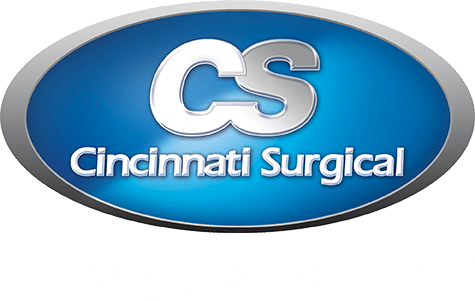Cincinnati Surgical and Swann Morton entered into a historic co-manufacturing agreement in 2015, combining our manufacturing capabilities in the Swann Morton Sheffield England facility. Our sustainability efforts are all a part of raising the standard for surgical blades worldwide.
As the global leader in surgical blade manufacturing, we have a responsibility to continue raising the standard of the manufacturing process including being environmentally conscience in our processes. We have the opportunity to integrate sustainability efforts into all aspects of our business to ensure a positive social impact.
Our partner, Swann Morton, developed a Sustainability and Social Impact Strategy with the goal of net zero emissions by 2050. This includes an in-depth Greenhouse Gas Protocol and the following list of initatives already in place.
Greenhouse Gas (GHG) Protocol: A Comprehensive Approach
At the heart of Cincinnati Surgical and Swann Morton’s sustainability initiatives is the commitment to reducing their carbon footprint. The Greenhouse Gas (GHG) Protocol serves as a guiding framework, categorizing emissions into three scopes:
Scopes 1 – Direct Emissions
These are emissions generated from sources directly controlled by Swann Morton, such as those arising from manufacturing processes and company-owned vehicles. Cincinnati Surgical is dedicated to mitigating and optimizing these direct emissions.
Scopes 2 – Indirect Emissions
This scope involves indirect GHG emissions from the generation of purchased electricity, heating, or cooling. By addressing the impact of these operations, Cincinnati Surgical aims to enhance efficiency and reduce its indirect environmental footprint.
Scopes 3 – Value Chain Impact
Indirect GHG emissions resulting from the broader business activities of Swann Morton, impacting the value chain, form Scope 3. Although not directly controlled by the company, Cincinnati Surgical recognizes the importance of addressing these emissions for comprehensive sustainability.
Swann Morton’s Progressive Initiatives
Under the umbrella of Cincinnati Surgical’s sustainability commitment, Swann Morton has spearheaded several initiatives aimed at promoting environmental responsibility within its operations:
Continual Improvement in Energy Efficiency
Swann Morton remains dedicated to the ongoing enhancement of its manufacturing processes. This involves the design, construction, and installation of energy-efficient production machinery. The latest models, for instance, utilize at least 50% less compressed air, contributing significantly to reducing direct emissions.
Significant Reduction in Packaging Materials
In a bid to tackle the environmental impact of packaging, Swann Morton has achieved a 20% reduction in packaging size. The discontinuation of plastic cellophane wrapping from its products has resulted in substantial savings. Swann Morton now preserves approximately 80,680 square meters per year on foils and plastic cellophane combined – a conservation equivalent to 11 football fields.
Recycled Raw Materials
Demonstrating a commitment to a circular economy, Swann Morton has prioritized the use of recycled raw materials. Over the past three years, an impressive 37% of all steel used in the production of Swann Morton blades and scalpels was sourced from recycled content, further contributing to the company’s sustainability objectives.
This partnership, is at the forefront of sustainable manufacturing in the surgical blades industry. Our commitment to reducing environmental impact demonstrates ongoing initiatives in energy efficiency, packaging reduction, and the use of recycled materials. This collaborative effort sets a new standard for environmental stewardship, showcasing how innovation and sustainability can go hand in hand in the world of surgical manufacturing.


Recent Comments